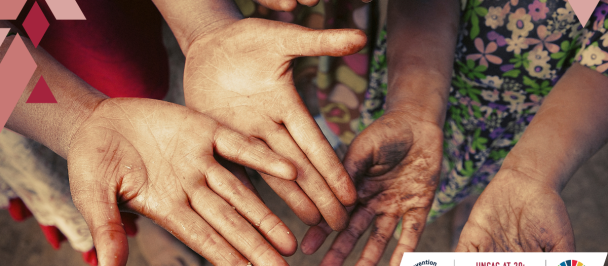Ending poverty and protecting our planet demand urgent action across borders, sectors, and silos, as well as large-scale financing. Through our new SDG Impact initiative UNDP aims to help leverage a sea change in capital markets and the private sector in ways that harness trillions of dollars to achieve these goals.
Here’s how:
Enterprises and investment firms that prioritize sustainability are big business. And they’re not just growing—they’re thriving. In the 12 years since the UN-backed Principles for Responsible Investment (PRI) was launched, the number of investment firms committed to sustainability grew from 63 with US$6.5 trillion to 1,715 with US$81.7 trillion in assets under management.
They aren’t sacrificing performance. Researchers at Harvard Business School have found that firms with processes in place since the early 1990s to benchmark and communicate on sustainability issues outperformed a carefully matched control group over 18 years. Other studies have found positive correlations between investment performance and commitment to environmental, social, and governance issues.
Several important factors are driving these trends.
First, the private sector sees opportunity and is pivoting to client and customer demand. Second, citizens and consumers, eager for faster change to address environmental, social, and governance challenges, are increasingly looking beyond government for solutions, including to companies and those who invest in them.
Third, millennials, raised on transparency, are increasingly holding public and private entities to account for their performance on a range of social and economic issues. This wired, widely networked generation wants its money, and its voice, to make a difference.
That’s how we at UNDP see things too.
In the world’s least developed economies, the private sector accounts for 60 percent of economic activity, 90 percent of jobs, and 80 percent of capital inflows. By 2030, global investment activity will likely amount to US$25 trillion, two thirds of it in developing countries.
Businesses that make smarter use of resources such as water and energy will gain efficiency and save money, while those that treat workers equally and well will enhance their reputations and effectively tap the broadest possible markets and talent pools.
But how can investors and corporations set goals, measure performance, and gauge their impact toward advancing the global good? One major obstacle up to now: Benchmarking, reporting, and auditing of corporate commitment to sustainability are neither standardized nor mandatory.
To us, the way forward is clear.
In 2015, all 193 United Nations Member States came together to endorse the Sustainable Development Goals (SDGs)—17 specific, time-bound targets aimed not simply at halting or mitigating threats to people and planet but at creating a better world for all.
These global goals represent a ‘to-do’ list for government and business alike. They can inform new data-driven tools and standards to direct capital flows in ways that truly leave no one behind. The SDGs give us the targets we need to achieve concrete, positive impact across a wide spectrum.
We have the financial resources to achieve the SDGs. But as UN Secretary-General António Guterres has said, investment just isn’t yet going where it’s needed most. And governments can’t fund their SDG priorities with public capital alone.
Despite growing recognition of the SDGs as drivers of long-term business performance, we still lack a widely accepted definition of what constitutes an SDG-positive investment—and that’s a major barrier. It means huge limitations on sustainability data, including non-existent data, inconsistent reporting and accounting, and sustainability metrics with limited correlation to finance.
UNDP’s SDG Impact aims to address these gaps.
In partnership with the Impact Management Project we’re developing global standards, metrics, and opportunity maps for investors and enterprises to measure progress toward achieving the SDGs. This will help countries mobilize private investment to achieve their SDG priorities, such as providing clean energy, safe drinking water, or adequate nutrition for all. We’re also creating an SDG Impact Seal to certify private sector adherence to an agreed set of standards.
These will serve as a basis for country-level SDG fora and policy dialogues to help connect investors with sustainable investment opportunities, with pilots in China, the Philippines, India, Turkey, Armenia, Egypt, Jordan, Brazil, Colombia, South Africa, and Nigeria.
Through our partnership with the Oslo-based Business for Peace Foundation we plan to pilot these SDG-enabling standards with an elite group of investors in Nordic countries—where commitment to achieving the Global Goals is high.
In another major step forward, our blue-ribbon SDG Impact Steering Group will hold its inaugural meeting in New York in June to chart a course forward and promote widespread adoption of SDG Impact.
We invite investors and enterprises to join us in this vital work, and we invite you to join the conversation on effectively investing for the global good.

 Locations
Locations



